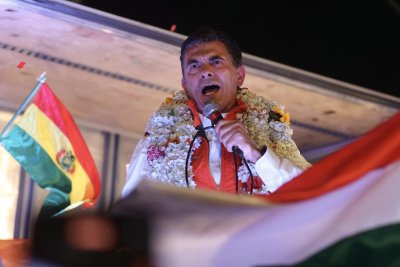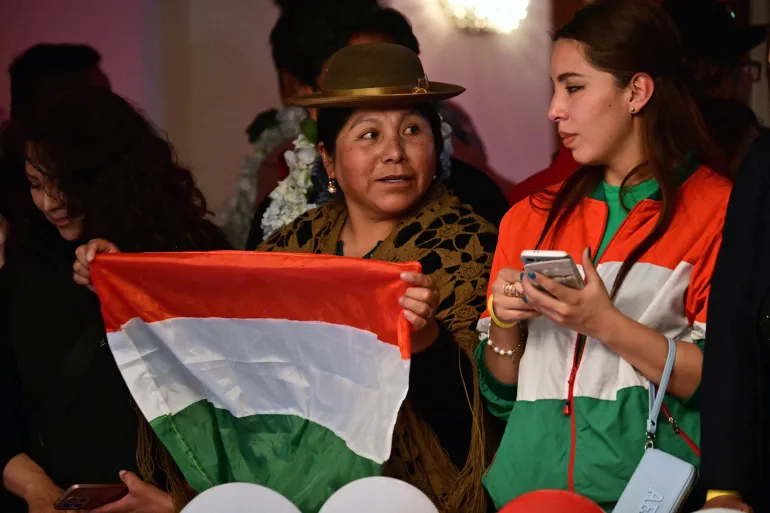Bolivia poised to elect Rodrigo Paz president

Centrist Senator Rodrigo Paz Pereira delivers a speech in La Paz, Bolivia, on Sunday. Paz expressed his gratitude for the support he received in winning Bolivia’s unprecedented presidential runoff election and promised to “reopen” the country to the world and work with all sectors that want to join in ‘moving forward’ from the crisis his nation is facing. Photo by Luis Gandarillas/EPA
Oct. 20 (UPI) — Bolivia is poised to elect Rodrigo Paz, a right-leaning centrist senator, as president on Sunday, besting former conservative president Jorge Quiroga in an election runoff.
According to preliminary results from the Supreme Electoral Tribunal, Paz, 58, of the Christian Democratic Party, won with 54.6% of the more than 6.5 million people in the country who cast ballots on Sunday.
Paz is the son of former President Jaime Paz Zamora, who served from 1989 to 1993.
Paz was elected after coming out on top of the mid-August presidential election — a surprise rise to the top of a heap of candidates as National Unit Front party’s Samuel Doria Medina was expected to be the winner at the time.
Sunday’s runoff was the result of neither Paz nor Quiroga, 65, winning the presidency outright in that August contest.
With both Paz and Quiroga being conservatives, their victories in the runoff ensured a right-leaning president would lead the country for the first time since 2006, when Bolivia elected union organizer Evo Morales as its first Indigenous president, who served until his resignation amid protests over voting irregularities in 2019.
“Here we were, here we are and here we will continue to be,” Quiroga said in a statement on Facebook as the election results became clear. “THANK YOU! Together we will keep working for a Free Bolivia.”
Paz won on a campaign to establish a market-based economy with the motto of “Capitalism for All.”
Quiroga had similarly championed a market-based economic system during his campaign, which emphasized private property rights for citizens.
The election comes as the South American country faces an economic crisis, with voters’ shunning of the leftist Movement Towards Socialism seen as a repudiation of the party.
“I congratulate the President-elect of Bolivia, Rodrigo Paz, for his victory in the elections and the entire Bolivian people for their democratic participation at the ballot boxes,” Chilean President Gabriel Boric Font said in a statement.
“From Chile, we reaffirm our commitment to strengthening cooperation and joint work between brother countries for the benefit of our peoples.”
U.S. Rep. Carlos Gimenez, R-Fla., said Bolivia, with the election of Paz, “has turned the page & defeated socialism.”
“From the U.S. Congress, I wish your administration great success as you restore freedom, prosperity & democratic values to Bolivia,” he said on X.

